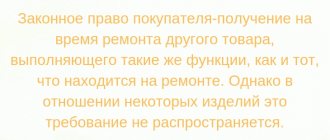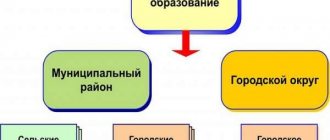Interrogation is the most common investigative action in criminal proceedings.
Therefore, since you have been summoned for questioning as a witness, it means that a criminal case has already been opened. If there were no criminal case yet, then you would most likely receive an invitation to an interview - a procedural action with a completely different status, the protocol of which is not evidence in criminal proceedings.
Summons for interrogation: what is behind it?
For an ordinary citizen who is lucky enough not to have anything to do with jurisprudence in his life, a summons for questioning raises a number of questions to which he most likely does not know the answers.
This is fine.
As Bernard Shaw said: “Every profession is a conspiracy against the uninitiated.”
Below I will try to answer the most common of them.
Are you being called in for questioning?
Get qualified advice from a lawyer BEFORE going in for questioning by the police.
Help from a lawyer
Responsibility for failure to appear
FLs expect sanctions for these types of violations:
- Failure to appear without valid reasons (fine 1,000 rubles).
- Refusal to provide evidence or giving evidence that does not correspond to reality (3,000 rubles).
A person is not held accountable if he did not receive a summons. Sanctions are imposed only when there is proof of receipt of the summons. Therefore, it is sent by letter with acknowledgment of delivery. However, a person may not receive a summons due to his own fault. For example, he did not inform about his new residence address in a timely manner. In this case, sanctions will be imposed on the FL.
We answer the most common questions
Does the investigator have the right to call me for questioning as a witness?
Here the answer will be unequivocal - yes, it does.
According to Part 1 of Art. 56 of the Code of Criminal Procedure of the Russian Federation, a witness is a person who may know any circumstances that are important for the investigation and resolution of a criminal case.
That is, a witness is someone who knows at least something that is important for the criminal case.
What could be so important?
Yes, anything, from human actions to natural phenomena. The law does not limit the range of such circumstances in any way.
In the unforgettable film “The meeting place cannot be changed,” an important circumstance for the investigation of the murder, for which comrade Gruzdev was initially accused, was information about the end time of the radio broadcast of the CSKA-Dynamo football match. This information, which seemed to have nothing to do with the crime committed, ultimately allowed the accused to be acquitted.
And most importantly, the question of whether you have information that may be important for the case or not will be decided by the investigator according to his inner conviction.
In other words, whether you should be a witness in the case or not is determined not by you, but by the investigator, and there is nothing you can do about it.
I heard that a summons for questioning must be in the form of a summons, then why is the investigator calling me on the phone?
A summons for questioning, according to the law, must be issued with a summons.
"1. A witness... is summoned for questioning by a summons, which indicates who is called and in what capacity, to whom and at what address, the date and time of appearance for questioning, as well as the consequences of failure to appear without good reason.
2. The subpoena is handed to the person summoned for questioning against a receipt or transmitted using means of communication...” (Part 1 of Article 188 of the Code of Criminal Procedure of the Russian Federation).
The main advantage of a subpoena for an investigator is that when it is served, a tear-off counterfoil with the signature of the person summoned remains in the file, which represents indisputable evidence of proper notification of the person about the summons for questioning. At the same time, the obvious disadvantage of the summons remains the inconvenience of its delivery. And the last circumstance often outweighs.
Therefore, investigators often limit themselves to a telephone call, which the courts, by the way, also recognize as proper notification of a call.
Is this always a bad thing? No not always.
The fact is that a summons, unlike a telephone call, excludes the possibility of the parties agreeing on a convenient time to appear.
The person being called has only two options. You either appear on time or notify the investigator in advance of the reasons for failure to appear (Part 3 of Article 188 of the Code of Criminal Procedure of the Russian Federation).
It is with this “in advance” that problems often arise. Will you have time to notify the investigator in advance if necessary? Is his phone number listed in the summons or will you need to send the notice by mail? And if circumstances change on the eve of the interrogation, will you be in time?
The situation is completely different with a call for questioning by telephone. Especially if the investigator makes such a call not from his office phone, but from his mobile phone, which has been happening more and more often lately. Accordingly, his number will be determined for you and you can always collect your thoughts and call him back.
If you need to reschedule...
How will the investigator react to the request to postpone the interrogation to another time or to another day convenient for you?
Yes, in the vast majority of cases it will be normal. This is his usual work, which he strives to accomplish with minimal costs, without unnecessary complications and conflicts. In such a situation, it is certainly easier for him to meet you and reschedule the interrogation, especially if the request to reschedule was made for the first time. It is clear that there are always exceptions, but this is the general practice.
Of course, all of the above does not exclude your right to doubt the identity of the caller and demand service of a subpoena; simply, for the reasons stated above, you need to approach this wisely.
Do I have to appear when summoned for questioning?
No matter how much you want it, you will have to show up eventually. And it’s better to do it yourself at a time convenient for you, rather than to be subjected to a drive when they will definitely not stand on ceremony with you.
The law provides for this situation.
In case of evasion of appearance without good reason, the witness may be brought in (part 7 of article 56 of the Code of Criminal Procedure of the Russian Federation)
The drive consists of forcibly bringing a person to the investigator (Part 2 of Article 118 of the Code of Criminal Procedure of the Russian Federation)
The Code of Criminal Procedure does not define in detail the conditions under which a person can be brought into custody, however, in practice, a summons is usually issued after a person fails to appear before the investigator twice without a good reason.
Moreover, the legal basis for the arrest can be both the tear-off counterfoils of the summons that are in the case, and the telephone calls for interrogation documented by the investigator in the form of telephone messages, certificates, reports...
In general, you shouldn’t bring it to this point, you definitely won’t like it.
Do I have the right to appear for questioning with my lawyer?
But here you are in your right. And no matter how much the investigator would like to talk to you face to face, he will not be able to prevent the lawyer from participating.
According to Part 2 of Art. 53 and part 5 of Art. 189 of the Code of Criminal Procedure of the Russian Federation, if a witness came for interrogation with a lawyer invited by him to provide legal assistance, then the lawyer has the right not only to be present at the interrogation, but also to give the latter brief consultations directly during the interrogation, and also, with the permission of the investigator, to ask questions to the interrogated, to make written comments regarding the correctness and completeness of the entries in the protocol. At the end of the interrogation, the lawyer has the right to make statements about violations of the rights and legitimate interests of the witness, which must be entered into the protocol.
Moreover, an agreement with a lawyer on legal assistance during interrogation implies that the lawyer also takes upon himself all issues of its organization, including agreement with the investigator on the time of the interrogation.
Unfortunately, to date, when interrogating a witness without the participation of a lawyer, there have been cases of psychological and even physical pressure being exerted on the witness. In addition, the vicious practice of initially interrogating future suspects and accused as witnesses has not yet completely outlived its usefulness.
Therefore, the right of a witness to appear for questioning with his lawyer, enshrined today in the Code of Criminal Procedure of the Russian Federation, is the most important achievement of criminal procedural law and the most effective guarantee of protecting the interests of the witness.
Whether to take advantage of this right or not is up to you to decide.
Can I be interrogated?
The Tax Code of the Russian Federation has defined two categories of individuals who cannot be interrogated:
1) persons who, due to their young age, their physical or mental disabilities, are not able to correctly perceive the circumstances that are important for the implementation of tax control (clause 1, clause 2, article 90, Tax Code of the Russian Federation);
2) persons who received the information necessary to conduct tax control in connection with the performance of their professional duties, and such information relates to the professional secret of these persons, in particular a lawyer, an auditor (clause 2, clause 2, article 90, Tax Code of the Russian Federation).
All other individuals may be questioned. If you belong to any of the categories of persons listed above, then before starting the interrogation you need to inform the inspector about this.
Can I refuse to testify to a tax inspector on the basis of Art. 51 of the Constitution of the Russian Federation?
According to the Federal Tax Service, an individual has the right to refuse to testify only on the grounds provided for by the legislation of the Russian Federation (Letter of the Federal Tax Service of Russia dated July 17, 2013 N AS-4-2/12837).
So, according to Art. 51 of the Constitution, no one is obliged to testify against himself, his spouse and close relatives, the circle of whom is determined by federal law (spouse, spouse, parents, children, adoptive parents, adopted children, siblings, grandparents, grandchildren).
A statement in any form (written or oral) about unwillingness to testify in general about the case or in its individual episodes is recognized as an unlawful refusal to testify (Appeal ruling of the Sverdlovsk Regional Court dated 04/06/2016 in case No. 33a-5930/2016).
Based on established practice, we can conclude that the courts recognize the lawfulness of imposing a fine in a situation where a witness refuses to answer absolutely all questions.
For example, the Nizhny Novgorod Regional Court heard a case where the chief accountant, summoned for questioning, refused to testify on all issues regarding the financial and economic activities of the organization. The court decided that the refusal to answer all questions does not indicate an unwillingness to disclose information that affects the rights and legitimate interests of an individual, but an intention in any way to prevent the tax authority from establishing the factual circumstances of the case (Appeal ruling of the Nizhny Novgorod Regional Court dated December 27, 2017 in case No. 33A -15220/2017).
In another case, which was heard by the Pskov Regional Court, the inspectorate imposed a fine for refusing to testify. The individual was summoned for questioning as part of an on-site inspection for the period when he was a director. The court also noted that witness testimony does not affect the legal rights and interests of an individual, since they are related to the financial and economic activities of the organization (Appeal ruling of the Pskov Regional Court dated January 27, 2015 in case No. 33-2148/2014).
Preparing for interrogation
It is necessary to prepare for the interrogation. View documents. Think through the details. Analyze the possible negative consequences of the answers. Determine the degree of frankness. What to say and where to remain silent.
If you are not confident that you can handle the stress of an interrogation, or cannot justify certain transactions that involve tax risks, go to an interrogation with a lawyer or tax attorney. He will drop Corvalol, give you confidence, control the interrogation procedure, record violations and be able to resist the inspector’s tricks. It's a lawyer. Or a tax lawyer.
Qualified legal assistance is enshrined in Article 48 of the Constitution of the Russian Federation. The inspector will not listen to the accountant explaining and, most likely, will not allow you to interrogate. If necessary, he will interrogate him separately.
There is a whole list of 80 questions that are recommended by the Federal Tax Service when conducting interrogations by the Federal Tax Service and the Investigative Committee. Some questions are asked to the general director, the other part to an ordinary employee. I recommend studying them (Letter of the Federal Tax Service dated July 13, 2017 No. ED-4-2 / [email protected] ) and preparing answers.
You must understand that the inspector is also preparing for interrogation. And he already knows the answers to some of the questions. He studied data on the number of employees, found out what assets are on the company’s balance sheet, data on your problematic counterparties, the amount of taxes, the average salary of employees, the company’s turnover, and what other organizations you participate in as an owner or director. Prepare this information too. There is no point in hiding it.
And, of course, questions have already been identified and prepared on the “painful” points of your business, for which you were called in for questioning. These may be questions related to tax optimization, about your counterparties, about strange and illogical transactions, and other questions that may raise suspicions of a tax offense.
You may not be prepared for all questions of this kind. But remember – you are not taking an exam, you don’t have to remember everything and answer clearly. Your task is to prove your competence by excluding conclusions about the nominal management and the receipt of unjustified tax benefits.
But don’t give too much information. For individual transactions, you cannot remember all the circumstances, so the answers “you need to clarify”, “you need to bring up documents in order to answer reliably” will be quite appropriate.
You have the right to come to the interrogation with a voice recorder. The recording may be helpful. You are not required to warn about this. An inspector, if he records the interrogation procedure by video or audio recording, is obliged to inform you, but you are not. We quietly turned on the recorder and went.
The inspector must include the fact of video and audio recording of the interrogation procedure in the protocol.
What reasons for non-appearance can be valid?
The Tax Code of the Russian Federation does not determine which reasons are valid.
The Moscow City Court indicated that they are formulated in paragraph 4 of Art. 90 Tax Code of the Russian Federation. According to this norm, the testimony of a witness can be obtained at his place of residence if, due to illness, old age, disability, he is not able to appear before the tax authority, and at the discretion of a tax authority official - in other cases (Appeal ruling of the Moscow City Court dated 18.05. 2016 in case No. 33a-15393/2016).
The courts recognize the following reasons for an individual’s failure to appear for questioning as disrespectful:
— the notification of the summons does not contain any indication of the tax control activity being carried out (Determination of the Moscow City Court dated 04/29/2015 N 4g/4-4710/15);
— the person who signed the notice of summons is not included in the group implementing tax control measures (Determination of the Moscow City Court dated April 29, 2015 N 4g/4-4710/15);
— the individual was summoned for questioning to the tax authority, where he is not registered. This inspection has registered an organization whose head the individual was previously (Appeal ruling of the Moscow City Court dated 08/06/2014 in case No. 33-31371);
- the summons did not indicate for what case the individual was summoned, there was no case number, the person against whom the case was opened was not identified (Appeal ruling of the Moscow City Court dated 08/06/2014 in case No. 33-31371);
— the individual was on a business trip;
- an individual cannot explain any circumstances (Appeal ruling of the Sverdlovsk Regional Court dated July 6, 2016 in case No. 33a-11638/2016);
- explanations as a witness have already been given earlier (Appeal ruling of the Court of the Yamalo-Nenets Autonomous District dated July 1, 2013 in case No. 33-1352/2013);
— the summons does not contain a specific indication of the tax control event being carried out, the summons itself does not comply with the established form (Appeal ruling of the Moscow City Court dated October 12, 2016 in case No. 33a-35659/2016).
The importance of the interrogation protocol
Read the protocol carefully. Take your time. Every page. Read the questions. And the answers. Is there any ambiguity or double meaning in them?
If you find inaccuracies, questionable wording or interpretations of your answers, you require adjustments. Take your time, check carefully whether they are included or not. Formulate yourself the phrase that should be included in the protocol. Don't agree with other people's words!
Blank lines must be crossed out.
If you came with a lawyer, let the lawyer check the protocol.
If an audio or video recording was used during the interrogation, or if someone else was present at the interrogation besides the inspector and you, all this should be reflected in the protocol.
If you have comments, clarifications, or objections to the recording of your testimony, you indicate them in the special section “Comments to the Protocol.” There is not enough space in this section, so if the objections are voluminous, put them on a separate sheet. And in the section for the protocol, indicate that the comments are presented on a separate sheet.
Only after making all your comments can you sign the interrogation protocol. The inspector is obliged to give you a copy of it or make a note indicating refusal of receipt.
Be sure to pick up your copy of the protocol. Please ensure that everything is printed and legible. And your objections too.
How does witness interrogation work?
After checking the details of the person who arrived on the subpoena, the investigator will explain to the witness his rights and obligations in accordance with part five of Article 164 of the Code of Criminal Procedure of the Russian Federation. What is required is official data, from marital status to being registered at a dispensary (narcology, psychoneurology).
Often, investigators motivate a witness to speak freely by asking them to “tell us what you know about the situation.” By listening carefully to the witness, the investigator will be able to identify his weak points and then build an interrogation around them. The police officer conducting the inquiry will try to bring the witness into a confidential conversation. He will present the most convincing arguments of the investigation after a while and always suddenly, in order to break through the emotional defense of the witness.
It is more convenient for the person being interrogated to participate in the interrogation in the “question-answer” format. By the way, the investigator will be well aware of the answers to the first few questions (up to 5-7 questions). He will try to evaluate from them how sincere the witness is. Keep in mind that the investigator’s task is for the person being interrogated to help him achieve his goal. And nothing else!
Keep in mind that with the procedural status of a witness, the personal interests of a citizen are the least protected (Article 56, Part 6 of the Code of Criminal Procedure of the Russian Federation). The only defense option for a witness invited by subpoena is to participate in the questioning of a lawyer.







